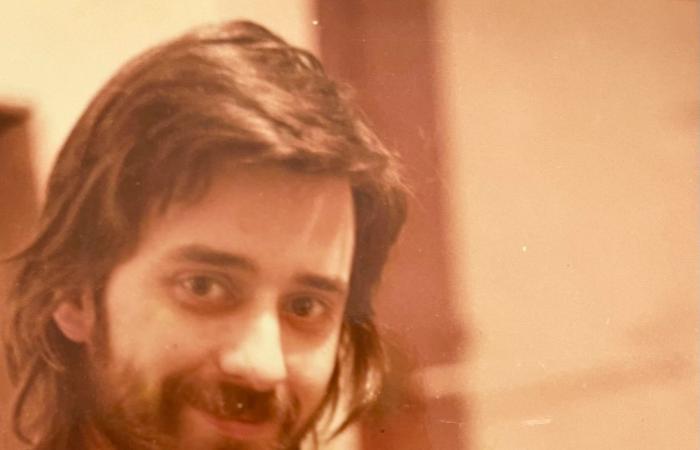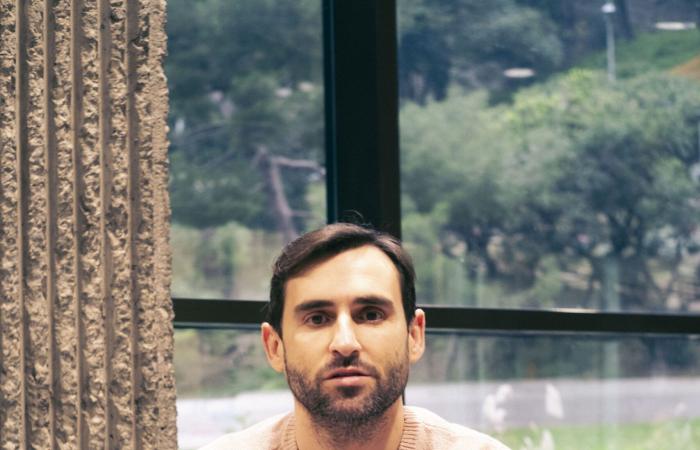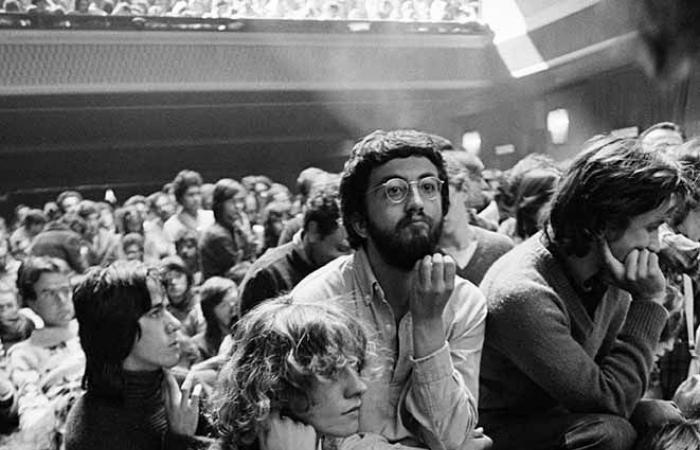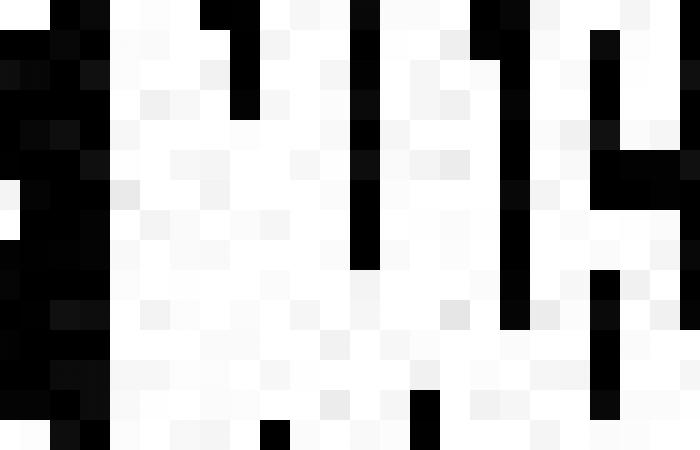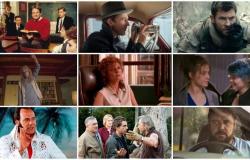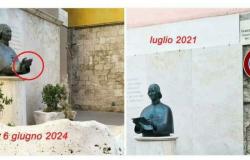Symbol of the extra-parliamentary formation, designed by Roberto Zamerin and published in the newspaper Continued Fight in 1972.
How old would your father be?” He starts like this, with one question that I throw out there point blank and with barely concealed indifference, the interview with Lorenzo Tosa. Author of a beautiful and honest book, of a courageous and sharp sincerity, hard and sometimes unsustainable. The book, I would like to ask you about that day (Rizzoli). Tell the story of his father Bruno, who committed suicide on 2 April 1986 jumping from a bridge in Genoa. Photography, subtle and merciless, «of an era in which the defeat of politics led many to take refuge in other projects. To go beyond: something he did not want to do».
And he also tells his story, Lorenzo’s, in pursuit of that father who disappeared too soon. A secular plea, a strong and vital desire to knowof knowledge, which reminds me of the equally poetic title of an old book by Wystan Hugh Auden, The truth, please, about love. He still manages to move me, to disturb me, to reconcile me with humanity and its failures, mine included.
Lorenzo Tosa: father, who if he were alive would be 72 years old
Lorenzo Tosa is now 40 years oldit could be my son. Bruno, the father born in 1952, «he would be, if he were alive, 72 years old», four more than me. All this makes me feel slightly dizzy because the book, right from the first pages, it’s about me too and this is also why it is a painful novel, which I struggled to abandon and forget. And that glued a veil of melancholy over me. For the missed opportunities, for his father, for mine, who left me an orphan at seven years old, for the hopes wrecked in the damned 80sthose of Reaganian Hedonism, the successful definition of Gianni Vattimo made pop by Roberto D’Agostino in Renzo Arbore’s glittering nights.
Lopsided score for two voices
And now here we are, sitting across from each other at the table a bar in Arenzano, Genoa, where Lorenzo lives. To study each other, to look each other in the eyes to seek confirmation before the flow of words overwhelms everything, the order of things and also that of questions, until it becomes a lopsided score for two voices. Lorenzo is a nice guy, quite tall without being either stooped or lanky. He has dark, piercing eyes, and a slight, poetic, Genoese inflection. He frequents social media with success and disenchantment: 600 thousand followers on Facebook and 160 thousand on Instagram make him the third most social pen in Italy. I feel an immediate, natural sympathy. For the benefit of him, of all those who were not there or were just born, in the 80s the cycle of politicization ended, of collective protagonism. And the search for social happiness, according to the expression of the sociologist Albert Hirschman. The social and ideological battles collapse, culminating inassassination of Aldo Moro (1978). And a new era begins, that of personal affirmation, the Italian society slips from We to Ifrom the Bierre to the Pierre. From the long-lasting struggle, as he sang Lotta Continua of which father Bruno was part, to short-lived success, from Revolt to John Travolta.

Bruno Tosa with his newborn son Lorenzo
An epochal reversal, e certainly not painless for many of us. But Lorenzo already knows all this, and it’s surprising how a boy (at the age of 40 for me he’s still a boy) can know it. May he know everything about the 70s and then the 80s, and even about the borders of Molise which is not lapped by the Ionian Sea as some think. And may he himself give back at 70, today only leaden, all their wealth, all their lights.
Lorenzo Tosa: My parents grew up on bread and politics
«I have approached those years even before writing this book, because there is the key to telling a piece of our country’s history and to understanding who my parents were, who grew up on bread and politics. Politics was everything, what happened around you reflected on you, comrades were friends and friends were comrades. They were years of great creativity, my father was creative. I think about music, a Franco Battiato, Luigi Tenco, Giorgio Gaber. He loved all three of them very much. I think of literature, of Pier Paolo Pasolini, I think of football, which even the Poet of Le Ceneri di Gramsci loved, playing it. In 1979, when almost everything had disappeared, my father began to organize football matches between former revolutionaries, as they liked to define themselves, and football acquired an important social dimension».

The writer Lorenzo Tosa
Lorenzo Tosa: Bruno, street Marxist
Lorenzo defines Bruno as a «Sidewalk Marxist», a serious and disciplined militant. He preferred facts to chatter. And for this reason he took part in street clashes in the ranks of the order service. Guys who used their hands when necessary, and not only those. «He was a gentle, quiet and kind man (he respected everyone, but not the fascists. His cousin told me), in the square he became a tough guy. He transformed himself, violence was part of everyday life. In 1969 there was the massacre of Fountain SquareAs you well know”.
That generation, it is true, filled the physical spaces, putting all of itself into the conflict. «This is not the case today, with the G8 in Genoa and the terrible repression that resulted, my peers understood that the body’s opposition no longer works. Life has become dematerialized and social media has magnified the phenomenon and fomented disillusionment and individualism. Taking to the streets seems like a subversive gesture».
Dad, Lotta Continua and the beginning of its end
Time passes quickly, unfortunately. Just like the disasters of a certain left-wing idea, Cuba, Nicaragua, without a social, inclusive, credible alternative yet appearing on the horizon. It wasn’t like this in the 70s. «My father has always looked for a way to find meaning and he found it in Lotta Continua, and the end of that experience was the beginning of his end.». Bruno dies when he was 33 years old and it is a cumbersome idea to climb. But Lorenzo succeeded, he found the father he didn’t know«a generous and idealistic man, too good for this world. Suicide had erased everything about him, he remained a holy picture. His figure, from flat like the photo on the tomb, has now become round again. Until three years ago I didn’t know that my father had killed himself. I discovered him by chance, and I think it was his radicalism and his coherence that brought him to that bridge, into a world that he no longer recognised. The discomfort, which had already manifested itself with a Tso (compulsory health treatment,ed), was now unsustainable, and depression an impassable cage».
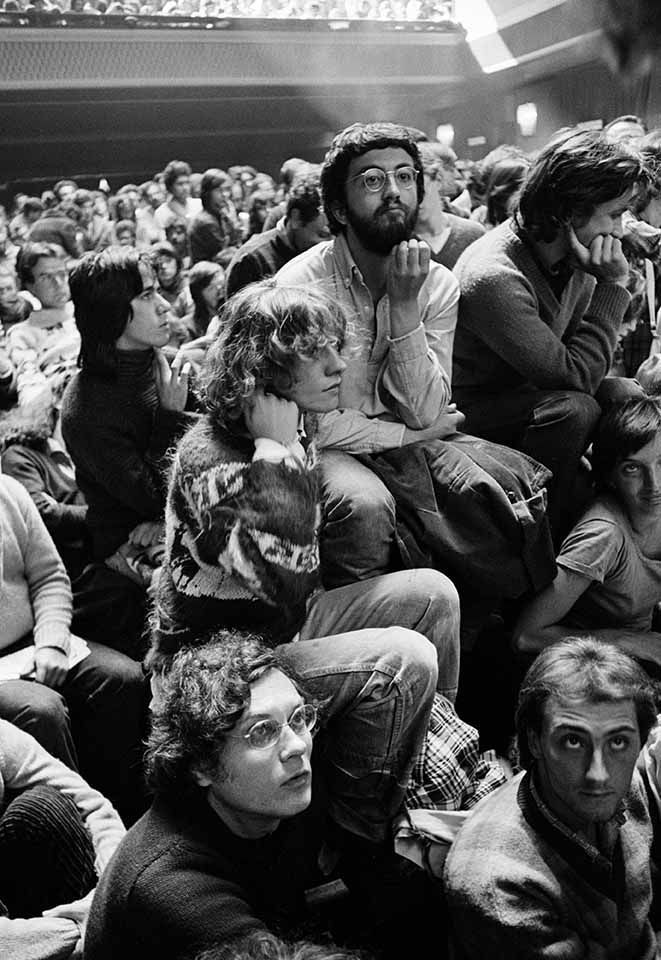
From 22 to 24 September 1977, 100,000 young people are in Bologna, at the Conference against repression
News, curiosities and insights.
To always be updated
through the point of view of those who
fashion is experienced from the inside.

News, curiosities and insights.
To always be updated
through whose point of view
he lives fashion from the inside.
Lorenzo has a six-year-old son. His birth contributed to breaking the cloak of silence, it shattered his certainties, it made him a father. Lorenzo’s story is also a story of fathers and sons, like mine and of humanity. Maybe I haven’t said everything, maybe I’ve forgotten something, but read the book. Books are written by people and here, despite the tragedy, it is there an explosion of life and beauty, like the hug we exchanged as we left each other.



